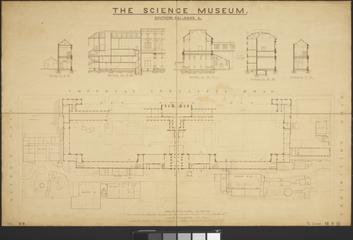
Philip Graham interviewed by Frank Paterson (session 2 of 2)
- Made:
- 2019-03-07
- maker:
- Frank Paterson
Oral history interview with Philip Graham conducted and recorded by Franck Paterson on 7 March 2019 (session 2) at the National Railway Museum in York. Duration: 3 hours 18 minutes. [Track 01] 1986 Area Operations Manager, Middlesborough, area, freight operations; [00:06:25] staffing, signal boxes, Tees yard, station; de-staffing stations; responsibilities; challenges managing staff; yard rationalisation; [00:11:10] how yards worked in 1966; [00:15:00] minor derailments; disciplinary system; communication system, then and now; mobile phone, pagers, emergencies; on-call responsibilities; [00:21:05] rules knowledge examination; regular meetings with chemical, steel and oil companies on servicing; Wilton power station, coal merry-go-round trains (MGR); [00:24:35] Redmire limestone train operation, crew operating level-crossings; [00:28:25] Whitby Branch single line, Glaisdale signal box operated with hydromatic points, signal engineer, Charles Weightman, simplified operation of Glaisdale; [00:36:00] track rationalisation; [00:40:00] 1989 business sector management at BR; [00:43:30] interview for Leeds Area Operations Manager, responsibilities, staffing, Leeds station; [00:51:00] signalling managers; Huddersfield resignalling scheme; [00:56:00] commissioning process, temporary block working by handsignaller; colour coding to minimise confusion, comparing with current practices; [01:01:00] Class 141 incident; Holbeck accident, lessons learned, rules changed; [01:04:00] introducing class 91, 1994 electrification to Neville Hill – Leeds North West commissioned; [01:07:00] Skipton transfer from London Midland Region to Eastern Region, challenges; signal boxes management transfer to regional railways; [01:12:10] organisational changes from regional railways to privatisation, personal impact, management changes observed; [01:17:30] working in signal boxes when short staffed; [01:19:00] 1994 Railtrack North East created, Movements Manager NE Zone, personal responsibilities; 1995 Zones merged, rationalisation [01:33:00] attitude to change, loyalty to Railtrack, maintenance by contractors; safety manager; personal view on Railtrack set-up; [01:39:30] 1994 signalling staff strike, [01:45:00] strike well supported, signal boxes operated by managers with signalling experience; management priorities; strike benefits for staff and managers; [02:00:00] 1995 zones merged, Movements Manager London North Eastern, 1997 responsibilities extended [02:04:16] [end of track 01] [Track 02] Railtrack, emergency response, delay attribution, level crossings management and inspections, disputed attribution, passing signal at danger; [00:06:00] end of Railtrack prior to Hatfield accident; delays data explained, Passenger Performance Measure (PPM); [00:10:20] Railtrack prior Hatfield; [00:13:30] gauge corner cracking, Durham, track condition, Hatfield; [00:18:00] personal recollection of accident site; [00:24:25] David Ventry, Head of Innovation, identified cause of accident; PG, Rail Incident Site Officer at Hatfield, responsibilities, procedures; [00:28:40] Heck derailment, Rail Incident Commander system explained, gold, silver and bronze; [00:33:05] speed restrictions after accident; [00:36:00] Railtrack into administration, Ernst & Young administrator, business as usual; Rolling Stock Acceptance Board (RASB) processes, Pendolino example; [00:41:00] transition from Railtrack to Network Rail, same job; maintenance taken in house by Network Rail; change from Zones to Regions; [00:47:10] changes in signalling, Project EROS (Early Reduction Of Signalmen); [00:52:20] Area Operation Manager for North East at Network Rail, organisational changes, rationalisation of signal boxes, level crossings; [00:59:00] retirement; [01:02:20] change in staff management, Project Violet Network Rail, assessment of personnel, shadowing redundancy interviews, negative experience; [01:07:20] PG providing signalling rules classes [01:13:53] [end of interview]
Oral history recording made in continuation of the NAROH project (National Archive of Railway Oral History), recording stories of people who worked on the railways